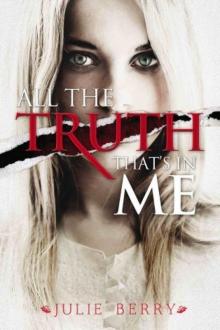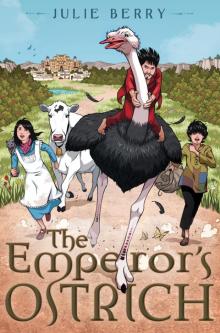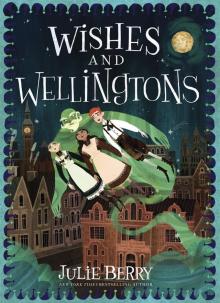- Home
- Julie Berry
Wishes and Wellingtons
Wishes and Wellingtons Read online
Also by Julie Berry
Lovely War
The Passion of Dolssa
All the Truth That’s in Me
The Scandalous Sisterhood of Prickwillow Place
The Emperor’s Ostrich
Thank you for downloading this Sourcebooks eBook!
You are just one click away from…
• Being the first to hear about author happenings
• VIP deals and steals
• Exclusive giveaways
• Free bonus content
• Early access to interactive activities
• Sneak peeks at our newest titles
Happy reading!
CLICK HERE TO SIGN UP
Books. Change. Lives.
Copyright © 2018, 2020 by Julie Berry
Cover and internal design © 2020 by Sourcebooks
Cover design and illustration by Chloe Bristol
Internal design by Danielle McNaughton/Sourcebooks
Sourcebooks and the colophon are registered trademarks of Sourcebooks.
All rights reserved. No part of this book may be reproduced in any form or by any electronic or mechanical means including information storage and retrieval systems—except in the case of brief quotations embodied in critical articles or reviews—without permission in writing from its publisher, Sourcebooks.
The characters and events portrayed in this book are fictitious and are used fictitiously. Any similarity to real persons, living or dead, is purely coincidental and not intended by the author.
All brand names and product names used in this book are trademarks, registered trademarks, or trade names of their respective holders. Sourcebooks is not associated with any product or vendor in this book.
Published by Sourcebooks Young Readers, an imprint of Sourcebooks Kids
P.O. Box 4410, Naperville, Illinois 60567-4410
(630) 961-3900
www.sourcebookskids.com
Originally published as an Audible Exclusive audio production in 2018 by Audible, a division of Amazon.
Library of Congress Cataloging-in-Publication Data
Names: Berry, Julie, author.
Title: Wishes and Wellingtons / Julie Berry.
Description: Naperville, IL : Sourcebooks Young Readers, [2020] | Audience:
Ages 8-11. | Audience: Grades 4-6. | Summary: Maeve Merritt, chafing
against the rigid rules of her London boarding school, finds her life
transformed by the genie she happens upon--and by those who want to
steal him.
Identifiers: LCCN 2020005287 | (hardcover)
Subjects: CYAC: Genies--Fiction. | Boarding schools--Fiction. |
Schools--Fiction. | Friendship--Fiction. | Orphans--Fiction. | London
(England)--Fiction. | England--Fiction.
Classification: LCC PZ7.B461747 Wis 2020 | DDC [Fic]--dc23
LC record available at https://lccn.loc.gov/2020005287
Contents
Front Cover
Title Page
Copyright
Chapter 1
Chapter 2
Chapter 3
Chapter 4
Chapter 5
Chapter 6
Chapter 7
Chapter 8
Chapter 9
Chapter 10
Chapter 11
Chapter 12
Chapter 13
Chapter 14
Chapter 15
Chapter 16
Chapter 17
Chapter 18
Chapter 19
Chapter 20
Chapter 21
Chapter 22
Chapter 23
Chapter 24
Chapter 25
Chapter 26
Chapter 27
Chapter 28
Chapter 29
Chapter 30
Chapter 31
Chapter 32
Chapter 33
Chapter 34
Chapter 35
Chapter 36
Chapter 37
Chapter 38
Acknowledgments
About the Author
Back Cover
For my mother,
Shirley Keith Gardner,
the original spunky girl.
Chapter 1
I’ve always been too prone to solve problems with my fists. It’s the reason Mum and Dad sent me to Miss Salamanca’s School for Upright Young Ladies, and the reason Miss Bickle, the needlework instructor, sent me this morning to Miss Salamanca’s private office. Apparently, I needed reminders of how upright a young lady ought to be, and those reminders, ten to one, were about to be striped across my lower back.
I sat stiff as a poker in the straight-backed chair facing Old Salamanca’s desk, feeling upright enough already. But judging from her hawk-eyed gaze, we clearly did not agree. The puffs on her dress sleeves seemed to swell with her indignation.
“Miss Merritt,” Old Sally began, “at this very moment, young Miss Treazleton lies in the infirmary with a cold steak over one eye. What do you say to that?”
And what should I say? That I was deeply sorry? Not likely.
“I say, she’s lucky it’s steak and not liver.”
Old Sally scowled even more.
“Steak’s got a nice homey smell to it. Cools down a bruise in no time.”
The headmistress brought her bony hand down on her blotter with a bang. “Young ladies at my school shall not brawl like alleyway hoodlums! Have you no regard for your family, your upbringing?”
I shrugged. Family? My mother shipped me off to this desert island after one too many brawls with the village boys. (Normally we got along, but they didn’t like losing to me at cricket.) Right now, Mother and my older sisters were probably in a dither over dresses. Except for dear old Polly. She never wanted me sent away.
Old Sally sighed like the early Christian martyrs must have before heading into the amphitheaters for another day’s toil with the lions. This again.
“Let’s take another approach. Why, Miss Merritt, did you strike Miss Treazleton in the eye?”
The straight answer would have been that one never needs a reason to sock Theresa Treazleton in the eye. She walks into a room, she has it coming.
But Old Sally wanted facts. So I gave them to her.
“Because Miss Treazleton stabbed me with a needle.” Not even darling, wealthy, adorable Theresa Treazleton and her chestnut ringlet curls could be pardoned for such a crime. “A four-gauge.” The Mother of All Needles.
Old Sally sucked in her breath. It whistled around her buckteeth.
“Where?”
I studied my fingernails, finding them suddenly to be objects of deep interest. “In needlework class.”
“No, where on your person?”
I held myself more upright. “In my never-you-mind.”
Old Sally rapped her fist on her blotter once more. “I will not be spoken to in that manner by a mere slip of a girl! Out with it, young lady. Where did she stab you with a needle?”
I had tried to spare her. She asked for it.
“In my arse.”
The whistling around her teeth could have guided boats across the Channel in a fog.
“Maeve Merritt! Where did you acquire such language?”
If I’d been any more upright, I’d have poked holes in the ceiling.
“Never you mind.”
Chapter 2
F
oul language. That’s how I came to be banished from two days of classes, with no excuses made for the missed work or failed examinations. I got dump duty. This, Miss Salamanca said, would spit-polish my tarnished character, or words to that effect. Something something, if I was determined to act like gutter trash and speak like gutter trash, I could jolly well spend some more time with the gutter trash and learn how well it suited me.
I didn’t half mind it. Aside from the stink.
That’s a lie. I hated it. But not as much as I hated sitting in Miss Guntherson’s French class.
My old governesses used to try the punishment method to reform my character, too. Back before Mother farmed out my discipline to school. It didn’t work. Those governesses never lasted long on the job. How I chewed through all the Miss Emmas and Miss Charlottes, back then… Perhaps my days at Miss Salamanca’s were likewise numbered. They’d be numbered zero if I had my wish.
It was a cold, late afternoon in December, my second day of grubbing with the rubbish. The wind bit through my stockings and spiraled up my legs. The sun was no more than a pale hint behind thick clouds, soon to set. Half an hour more, and I’d be summoned in to wash and eat in the back kitchen, away from the starched pinafores and delicate noses of the other upright young ladies who weren’t shamed by a punishment, at least at the moment.
I wore Wellingtons and canvas gloves as I sifted through the dustbins, the trash heaps, and the gutters, separating out the tin cans and the stuff that could be burned in the furnace from the fireplace ashes and stuff to be collected by the dustman. My face grew sooty and my lungs felt like an ash pail. My canvas gloves sopped with rotting apple-peel mush and cabbage soup. If I tried darting off through twisting streets and alleys and getting lost in London, I wouldn’t be hard to find. “Sergeant, the runaway is a skinny girl, oh, about thirteen, wearing Wellies and a gray serge uniform. Smells like a compost heap.”
I wondered, a time or two, what Mother and Dad would say if they knew they were paying tuition for me to paw through trash piles looking for tin and wool. Dad was always carping about money. He was a senior clerk, though not yet an officer, at St. Michael’s Bank and Trust. And Mother, between her ladies’ societies and hat shopping and fussing over my older sisters, Polydora, Deborah, and Evangeline (“soon to be married, praise heaven”) probably wouldn’t worry too much about me garbage-grubbing. Provided, that is, that no one who knew us saw me doing it.
To be precise: Mother never fussed over Polydora. Polly’s not the type of person one fusses over. It’s probably why she’s my favorite. She’s got much too sound of a head on her shoulders for fuss and nonsense. Now, Deborah and Evangeline, on the other hand…
Mother had let my older sisters leave school at the age of twelve, firm in her belief that too much education spoils nice girls. Dad’s checkbook fully supported Mother in this proposition. As for me, they said, an active mind like mine needed stimulation and discipline—as far from home as possible, where I couldn’t outrage the neighbors and shame the family by sneaking out my bedroom window and wickedly fraternizing with boys. Playing marbles, hopscotch, hoops, and jacks, it seems—especially with boys from the wrong families—is a scandal and a sin. If so, I’ll take a fiery afterlife. It beats playing dollies and tea parties with prissy girls like the sort Mother kept hoping I’d socialize with—the fluffy daughters of her feathery friends.
“Move it along sharpish.” Mrs. Gruboil, the cook, and a general pestilence to all the downstairs help, poked her red nose out the window shutters to remind me she was watching. “That job’d best be done come supper.” The shutters banged shut.
Misery. That’s why parents send daughters away to schools full of wrath and bile. So they can blight their young lives with a heaping dose of misery. They deserved to have their money wasted.
A movement from across the back alley caught my eye. It was that scrawny ginger-haired boy from the orphanage, spying on me from over his back-garden gate. Mission Industrial School and Home for Working Boys. What a place.
I scowled at the boy and threatened to heave a rock. He ducked and disappeared. We’d never met formally—I didn’t even know his name—but most of the orphan boys at the charitable home had heard of my throwing arm. I’d overheard one say it was too bad I couldn’t play cricket. I might turn out to be passably good bowler, if girls could play. Little did they know!
But December wasn’t cricket weather, and I had a foul job to finish. I moved on to the next rubbish pail and plunged my arm up to my wrist into the cloudy ash, and pulled out something flat and heavy. A sardine can, unopened. Of all things! How did that end up in the dustbin? Mrs. Gruboil, the cook, was mad about sardines. She often smelled fishy, in fact. I couldn’t fathom her throwing a full can away.
I shook the sardine can and examined its lid. Underneath the grime, it was nicely decorated. Enameled, even. I’d seen collector tins like this in greengrocer shop windows. “Sultana’s Exotic Sardines, packed in salted oil, imported exclusively by the Eastern Trading Company, Liverpool.” I hoisted up the hem of my petticoat and polished the can for a better look.
I could almost swear the tin wiggled in my hands.
“You sardines aren’t still swimming in there, are you?” I said aloud. I polished the tin some more. It nearly slipped through my fingers.
“You see that, Miss Salamanca’s School for Upright Young Ladies?” I cried, waving my tin of fish at the brick wall that faced the alley. “Work me to the bone, scrimp on my meals. Now I’m having tremors!”
Mrs. Gruboil banged the shutters in reply.
I sat down on the back step of the old school building. On an impulse, I turned to make sure there were no faces in the windows watching me sneak teatime sardines. I preferred them on buttered toast with mustard, but my fingers would do. Naturally, Mrs. Gruboil hadn’t called me to tea when the other young ladies were served.
This was one of the fancy sardine tins that came with a key to open it. I’d never opened one before. Cook always did this sort of thing back home. But I’d watched her do it, so now I wrenched the key off and fitted the little flap inside the slit on the key. Then I cranked the key back.
A thick, sulfur-colored vapor poured out through the growing opening.
“Faugh!” I pinched my nose and waved away the putrid odor. “They’re rotten!”
The vapor swirled around my head but wouldn’t stop streaming out from the tin. I flung it on the pavement and fanned the air desperately with my scarf.
“Desist!” a voice roared from amid the sulfurous plumes. I stopped cold. Whoever it was, it sounded ferocious. But I couldn’t see anyone. Just this pestilent cloud of mustard-yellow smoke. I took off my coat and flapped the air with it.
“I said, desist!” bellowed the voice. “Cease your flapping, you wretched female, or I’ll feed you to sharks in tiny pieces.”
I stuffed my arms back into my coat. Whoever this voice belonged to—undoubtedly, a murderer—a murderer in a sardine can?—it seemed better to face him warm than frozen stiff.
“Who are you calling ‘wretched’?” I cried. “You’re nothing but fish stink and bad manners.”
“Manners?” came the voice again, cold as the sea and full of contempt. “Where I come from, a girl with manners like yours would be skinned and boned and eaten for supper.”
The vapor spun and twisted upon itself like a storm. Bits of it broke off and drifted away, and the main body of smoke reached tendrils after them to try in vain to gather itself back. I’d never seen such a marvel. Certainly not in London. And London has its share of noxious vapors, to be sure.
“I was just about to eat you for tea: skin and bones and all,” I replied. “And I would have, too, if you hadn’t turned out to be festered.”
Rage seethed around him. He blasted me with his fishy breath.
“Festered? A mere mortal calls me festered? Your kind is food for vultures and w
orms. I, Mermeros, consort with warriors and kings! Lords and princes beg favors at my feet.”
“What feet?”
The mist was definitely assuming a human-like shape now. A head, and arms, of sorts, and a massive trunk, though the legs drifted off to little more than a tether binding the apparition to the sardine can.
I knew it! I knew it. I could jump, I could scream, I could dance a jig. And I’d found him, so he was mine, mine, mine! From a tin? Why not from a tin? These were modern times. They could put anything in tins these days.
A djinni! My very own djinni!
He was huge. Twice the size of most men. But I’d learned, growing up playing ball with village boys, never to let my smaller size get into my head.
He thrashed about, stretching and grimacing, pulling on his cheeks, and flinging his arms out every which way. It was as if he were made of clay and was now trying to reshape himself properly after being cooped up in a sardine tin. Oh, but he was a ferocious-looking devil! Deep green and gray skin, mottled and rippling, like waves on a stormy ocean. Bristling white eyebrows over bulging fish-green eyes, glaring poisonously. The most absurdly long-tailed mustaches, curling in outrageous white loops inches past his face. A huge-domed head, round and bald as a billiard ball.
He looked mean. Mean and old. Older than London, maybe, and London went all the way back to the Romans! But there was nothing weak about this old man. His massive green muscles rippled with power, though he had nothing but smoke where legs ought to be.
“Mermeros,” I said. “That’s a funny name. But I know what you are. You’re a djinni!”
His nostrils flared. He folded his thick green arms. “Do I require baby females to tell me what I am? A djinni, eh? You know nothing.” He sniffed the air and surveyed the alleyway. “Tell me,” he demanded, “what place is this? What sovereignty? Name your king, and the number of your present year.”
I laughed aloud. “You’re a fine one to talk about knowing nothing.”
He only glowered at me.
“This is London, capital city of the United Kingdom of Great Britain and Ireland, seat of the mighty British Empire,” I told him, not without some pride.

 The Amaranth Enchantment
The Amaranth Enchantment Secondhand Charm
Secondhand Charm All the Truth That's in Me
All the Truth That's in Me Lovely War
Lovely War The Emperor's Ostrich
The Emperor's Ostrich The Passion of Dolssa
The Passion of Dolssa Wishes and Wellingtons
Wishes and Wellingtons The Scandalous Sisterhood of Prickwillow Place
The Scandalous Sisterhood of Prickwillow Place Amaranth Enchantment
Amaranth Enchantment